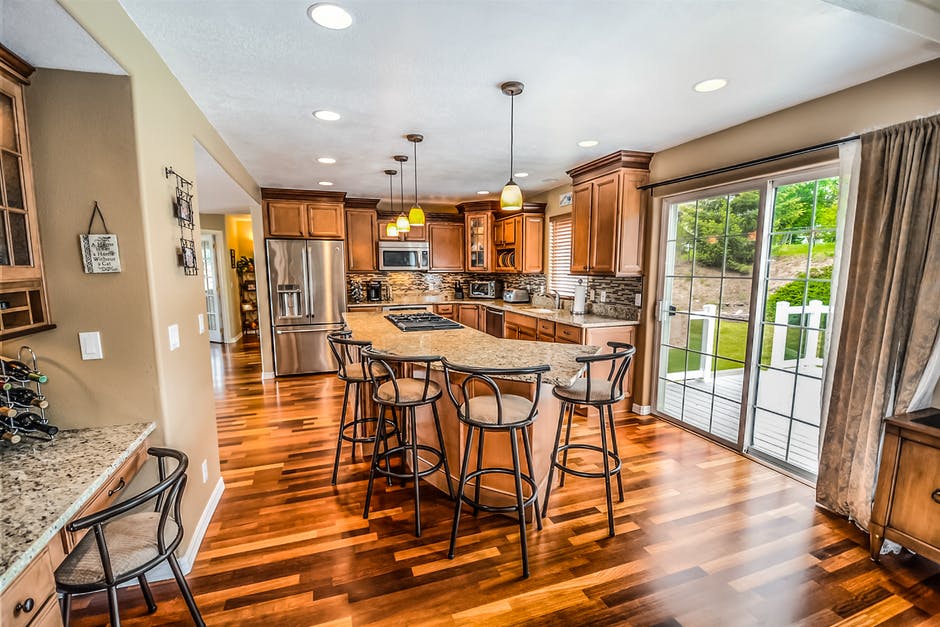Kitchens come in second as the most remodeled room in homes today.
When it comes to renovating your kitchen, there are so many choices to consider, such as cabinetry, appliances, flooring, painting, and countertops.
Countertops are one of the most heavily used spaces in the kitchen, so choosing a material for your countertop is essential.
While there are a variety of different materials to choose from, granite is a popular option for several reasons. Keep reading to discover the pros and cons of granite countertops and if they’re a good fit for your kitchen.
What Is Granite?
Granite is a type of rock known as igneous rock. It’s a composition of many different materials such as quartz and feldspar. Granite is ubiquitous and is a popular choice for countertops, buildings, and in more commercial and residential places.
Pros and Cons of Granite Countertops
Granite is an attractive choice for homeowners looking to replace their countertops.
Here are some of the benefits of granite countertops.
1. Durability
The strength of granite is one of its strong characteristics. It’s both scratch- and heat-resistant. Granite can handle a hot pan right off the stove.
Because of its strength, it recommended that you do not use knives directly on the countertop, because they will dull.
If you do a lot of cooking, granite is the way to go because it will hold up to all the wear and tear.
2. Timeless Look
Granite countertops are gorgeous, and each slab is unique. With a variety of colors to choose from, it can pull together any classic kitchen look, and its elegance never goes out of style.
If you love the look of marble, some granite countertops copy a marbled look for less.
3. Resists Staining
Sealed granite does a brilliant job of repelling stains and keeping out liquids. This requires a durable sealant. Ideally, you’ll want to seal it once a year to keep it protected.
4. Bacteria Resistance
Granite is porous, meaning it has small pores and crevices where liquids can enter and possibly breed germs and other bacteria. But granite won’t absorb any bacteria, and once it’s sealed, it repels germs.
5. Easy to Clean
Once the granite is sealed, it produces a smooth surface which makes it easy to clean. There are no individual cleaning products necessary to clean granite countertops, except for soap and water daily. Refrain from using vinegar, lemon (anything acidic!), and ammonia as these can damage the sealing.
6. Fixable
Lots of life happens in the kitchen. If something happens to chip your granite, instead of replacing the entire countertop, many stores sell home repair kits that allow you to fix the problem at home.
If the damage is significant, always call a professional to come in and correctly repair it.
7. Keep Chemicals Out of Your Kitchen
Natural stones like granite contain no chemicals. It comes directly from nature, not a lab! They also don’t give off any radiation or harmful gasses.
8. Not Just For Countertops
While granite makes a beautiful countertop, some people will use it as a backsplash option as well. This creates a very smooth look. Be sure you have the budget to accompany this because it can get pricey very quickly, especially if you have a large kitchen.
What Are The Cons of Granite?
Despite all its advantages, there are somethings to be wary of when purchasing granite countertops.
1. You’re in it For The Long Haul
Once you choose granite, it’s a forever choice! Replacing it is costly, so be sure it’s what you’re looking for before you purchase and install it.
2. Sealing Problems
Several problems arise from improper sealing of granite. If your countertop is not sealed, you will have staining and bacteria problems. A professional can help you seal your countertop accordingly.
With advances in technology, some countertops can sustain use for up to 10 years without additional sealing. However, check with the manufacturer for the best sealing options and recommendations.
3. Expensive
Especially with yearly sealing, granite can become more expensive depending on the pattern and how much you need. Generally speaking, granite can cost you around $75 per square foot, though you can find it cheaper or more expensive depending on the type you want.
If you’re on a budget and you still desire granite countertops, try shopping local stone yard and browsing their selection. Often time, you might be able to piece together enough at a lower cost, as long as you can handle a less uniform look.
4. Cracking
Though it’s highly unlikely and rare due to its strength, granite, if not properly maintained, can crack. Depending on the severity of the crack, you might need to replace the slab entirely, and this could get expensive.
To avoid cracking, make sure you have a professional install and seal your countertop.
Caring For Your Countertop
Granite is typically low maintenance, but there are a few key elements to remember.
As mentioned before, make sure your countertops are sealed well. Consult a professional if you need.
Daily wiping with soap and water will keep it bacteria-free.
Clean up spills immediately to prevent them from leaking into the natural stone. Use coasters if the item is wet.
Make a homemade disinfectant with alcohol and water and use it to kill germs.
Granite Countertops: Are They for You?
The pros and cons of granite countertops are many, but the benefits seem to outweigh the cons. Are you ready to start looking for your perfect granite countertop today?
Are you looking for more kitchen inspiration? Keep browsing our blog to help you achieve the kitchen of your dreams!

